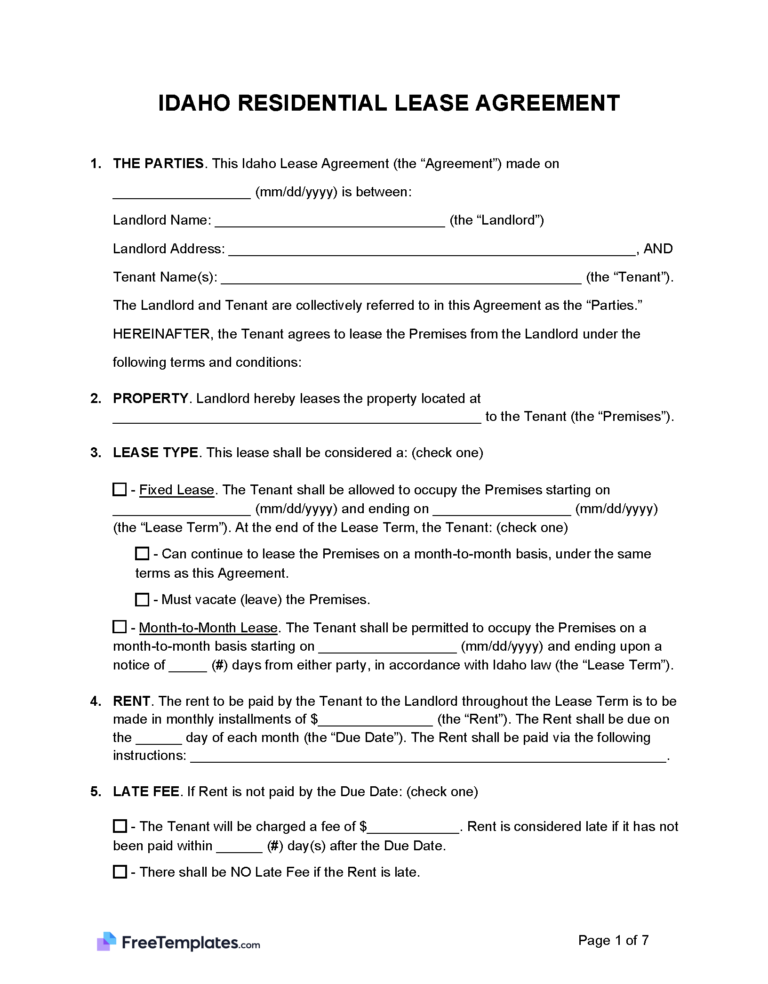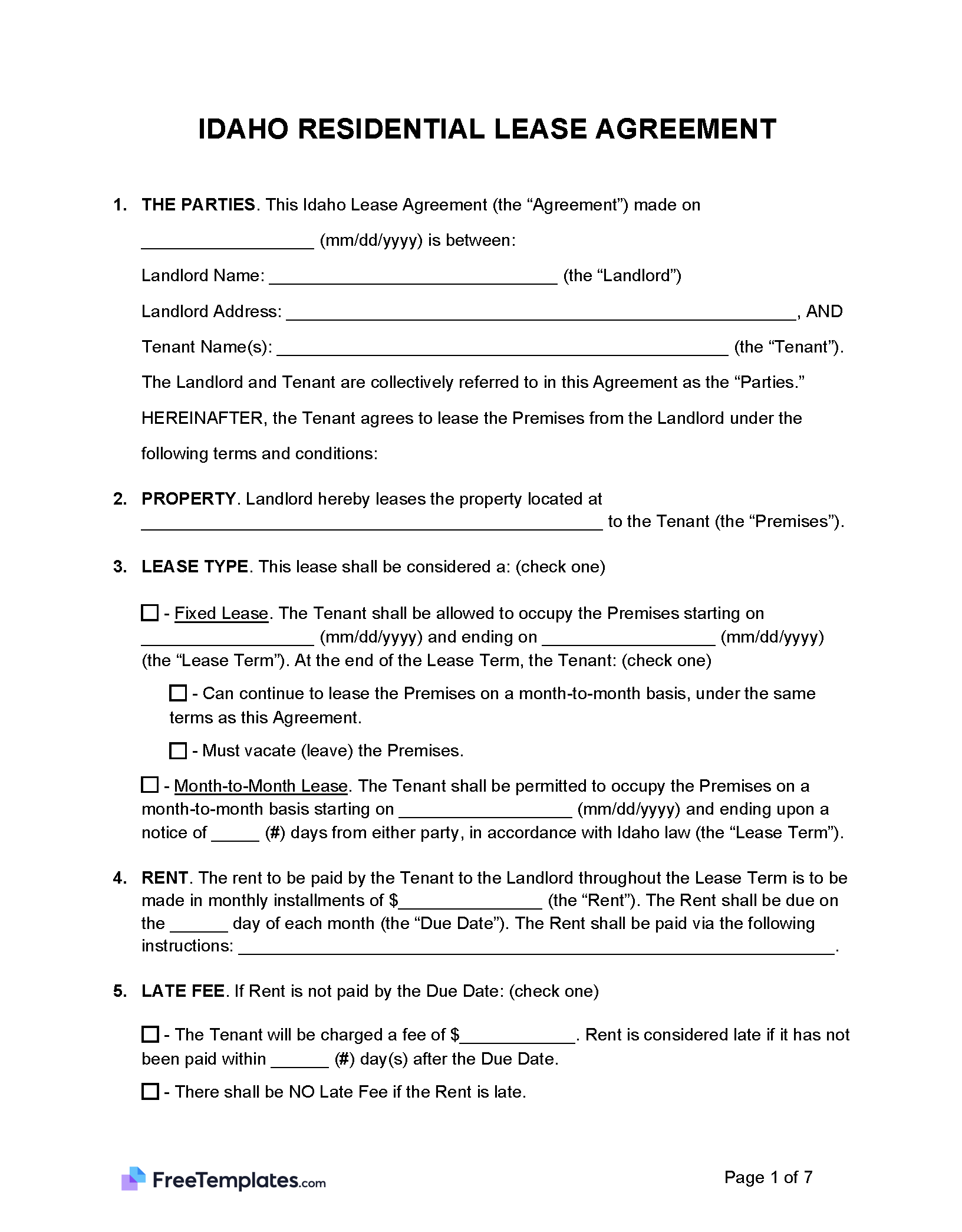By Type (6)
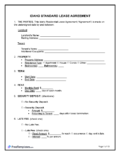 Standard Lease Agreement – A traditional landlord and a tenant rental contract for a fixed term. Standard Lease Agreement – A traditional landlord and a tenant rental contract for a fixed term.
|
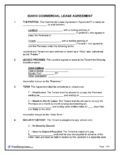 Commercial Lease Agreement – A legal arrangement in which a business rents a property for commercial purposes. The business is the tenant and the owner or the property manager is the landlord. Commercial Lease Agreement – A legal arrangement in which a business rents a property for commercial purposes. The business is the tenant and the owner or the property manager is the landlord.
|
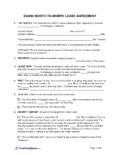 Month-to-Month Lease Agreement – A short-term rental contract with monthly terms. Month-to-Month Lease Agreement – A short-term rental contract with monthly terms.
|
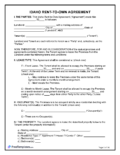 Rent-to-Own Agreement – A legal document in which the landlord agrees to tell the rental property to the tenant after a disclosed amount of time. Rent-to-Own Agreement – A legal document in which the landlord agrees to tell the rental property to the tenant after a disclosed amount of time.
|
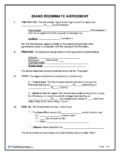 Roommate Agreement – An arrangement between co-habitants that outlines the responsibilities of each party. Roommate Agreement – An arrangement between co-habitants that outlines the responsibilities of each party.
|
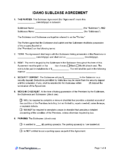 Sublease Agreement -A rental contract in which the tenant rents out all or part of the rental property for a set length of period. The original tenant remains responsible to the landlord for the original lease agreement. Sublease Agreement -A rental contract in which the tenant rents out all or part of the rental property for a set length of period. The original tenant remains responsible to the landlord for the original lease agreement.
|
Disclosures (7)
Community Rules – The landlord must inform the tenant of any rules of the community. (Idaho § 55-2007(c))
Landlord’s Contact Details – The landlord must inform the tenant of the name and address of the property owner or the person authorized to manage the property who resides in the state. (Idaho § 55-2007(d))
Lead-Based Paint Disclosure – Landlords must disclose information about the presence of lead-based paint in properties built before 1978.
Rent Payment Terms – The landlord must disclose the terms for rent, including the amount, time, and place for payment, as well as any other charges to be paid to the landlord. Charges that occur less frequently than monthly must be itemized. (Idaho § 55-2007(a))
Security Deposit Withholding – Landlords must detail the conditions under which any portion of the security deposit may be withheld upon termination of the lease agreement. (Idaho § 55-2007(e))
Smoke Detector Disclosure – The landlord must disclose the presence of smoke detectors in the rental property and verify their working condition. (Idaho § 6-320(6))
Utility Disclosure – The landlord must disclose the utilities included in the rent and which utilities are the tenant’s responsibility. (Idaho § 55-2007(b))
Security Deposit
Maximum Amount – Idaho does not regulate a limit on how much a landlord can charge a tenant for a security deposit.
Returning to Tenant – The landlord must return all security deposits to the tenant, except for amounts needed to cover specific stipulations agreed upon in the deposit arrangement. Refunds must be made within 21-30 days of the lease ending. (Idaho § 6-321(2))
- Landlords cannot retain any part of the deposit for everyday wear and tear of the property. (Idaho § 6-321(1))
- The landlord must provide an itemized list if any portion of the funds is not returned to the tenant. If the property changes ownership during the tenancy, the new owner is responsible for refunding the deposit to the tenant. (Idaho § 6-321(3))
Landlord Access
General Access – Idaho has no specific laws regarding when a landlord can enter a rental property. A landlord can enter without permission.
Emergency Access – The landlord can enter the rental premises anytime during emergencies.
Paying Rent
Grace Period – Idaho does not regulate grace periods for delayed rent payments. Landlords in Idaho can charge a fee as soon as the rent is late.
Maximum Late Fee – Landlords can charge a late fee for late rent. Idaho does not set a limit.
Returned Checks (NSF) – If the tenant’s check bounces and remains unpaid for 15 days, the landlord can charge a fee of 12% interest plus a fee of $20 or the check’s face value, whichever is lesser. This does not apply to checks dishonored due to a justifiable stop-payment order. (Idado § 28-22-105)
Reasons for Eviction (5)
Non-Payment of Rent – When a tenant fails to pay rent, the landlord can serve an eviction notice, giving the tenant 3 days to pay or leave the premises. (Idaho § 6-303(2))
Non-Compliance – If the tenant violates the lease terms (besides rent payment), the landlord can give the tenant written notice. The tenant has 3 days to correct the violation or vacate the rental. (Idaho § 6-303(3))
Lease Expiration – If the tenant stays in the rental unit after the lease ends without the landlord’s permission, the landlord can begin the eviction process. This does not include tenancy at will or a lease without a written agreement and with no fixed term. (Idaho § 6-303(1))
Unauthorized Subletting – If the tenant sublets the rental unit without permission from the landlord, as disclosed in the lease, the landlord may terminate the lease with a 3-day notice to quit. (Idaho § 6-303(4))
Illegal Drug Offence – If any person is, or has been, engaged in unlawful cultivation, use, or delivery of a controlled substance, the landlord can terminate the lease. (Idaho § 6-303(5))
